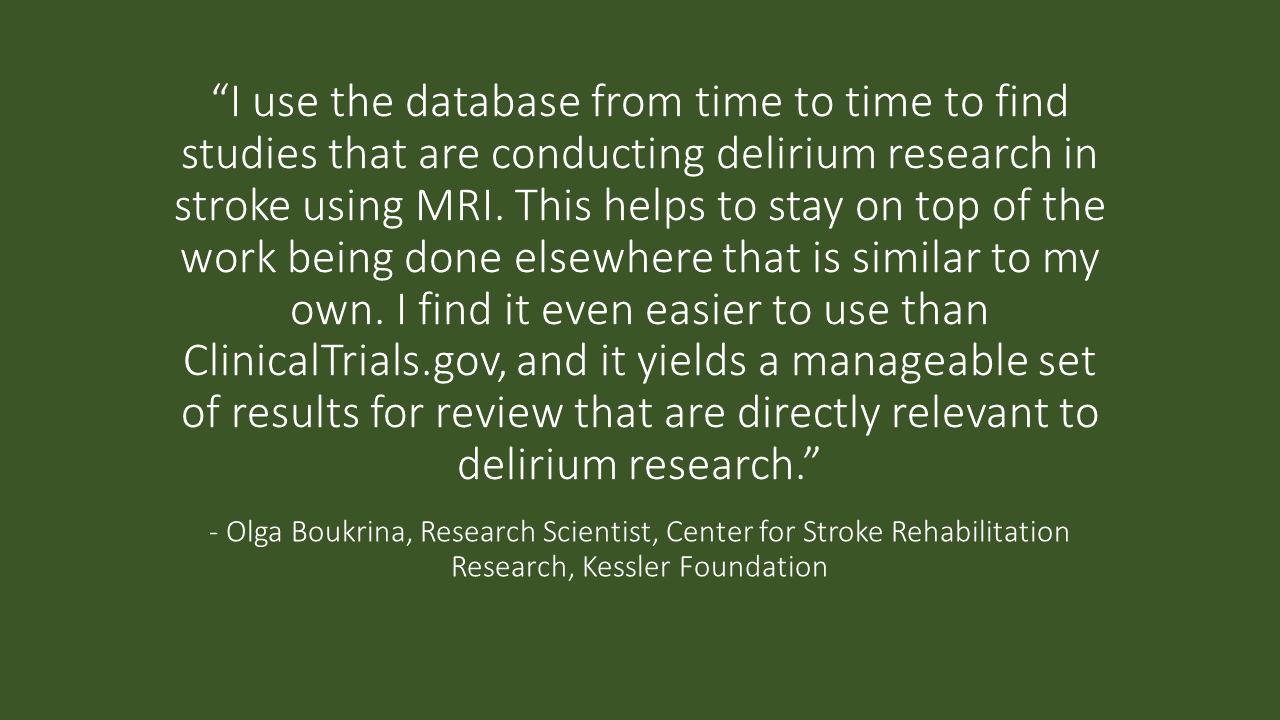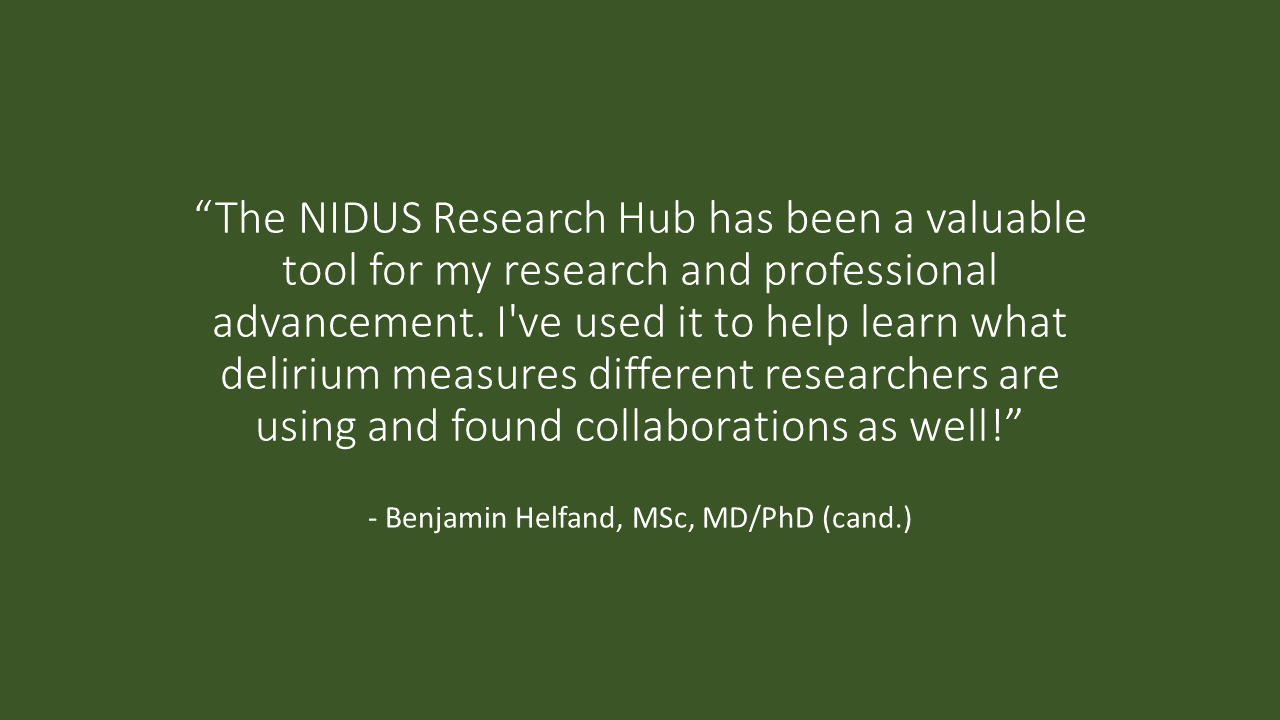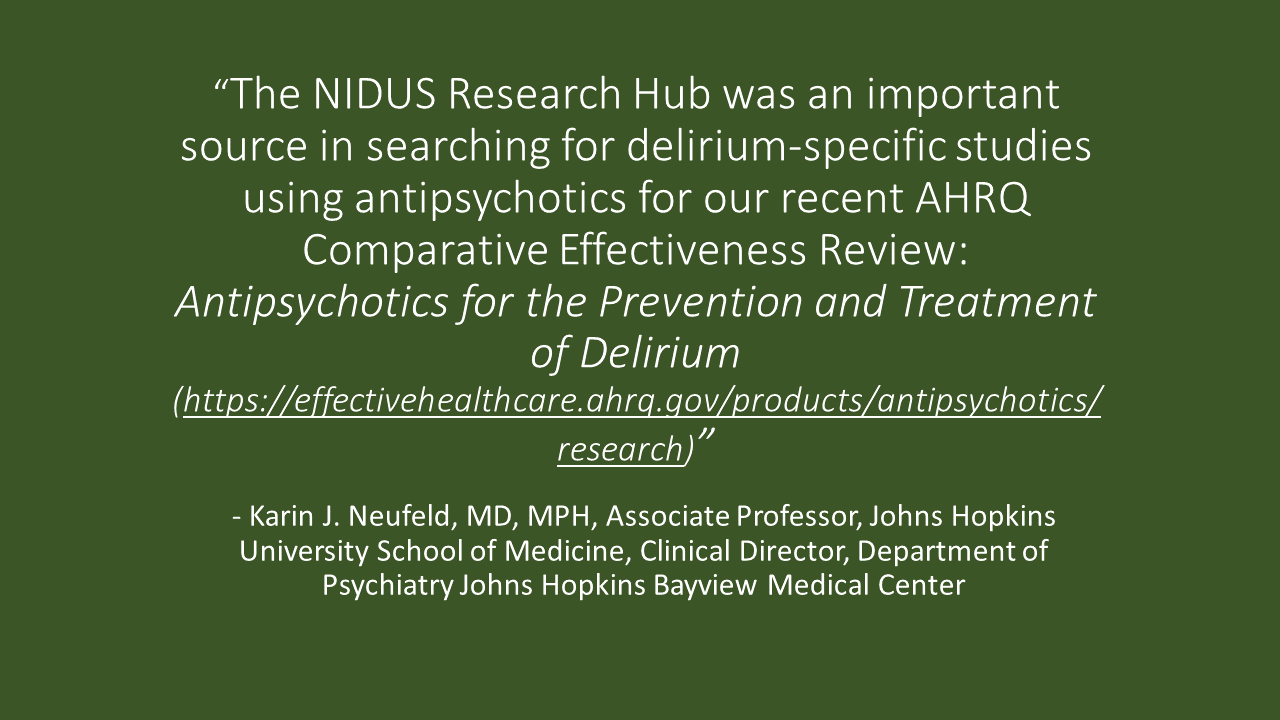Delirium Research Hub
The NIDUS Delirium Research Hub includes study meta-data (like a "table of contents") for variables such as study design, sample characteristics, collected biospecimens, neuroimaging tests, neuropsychological testing, and pharmacologic intervention. The Hub consists of two databases:
- Delirium Research Hub (contains over 1500 studies focused on human and population-based studies)
- Animal Models Hub (contains over 250 studies pertaining to basic research relevant to delirium)
Please also peruse our Top 10 FAQs about the NIDUS Delirium Research Hub.
Access the Human Research Hub and/or Animal Research Hub!
- Register (for free) to become a NIDUS member. You must be a registered NIDUS member to access the Hub!
- Search the hub (using the Resource Finder) for specific study information. Sort & filter options to find studies relevant to your work. You can sort by variables, including:
- Study design
- Study status
- Study name or acronym
- PI name or contact name - Download PDF summaries of specific studies or export Excel files for multiple studies.
We hope the Hub will facilitate collaboration, secondary data analyses, and pilot studies to enable advances in the field of delirium research. Each study entry includes contact information for the relevant study staff so researchers can develop connections and seek out existing data, resources, or information to complement their own research.
If you would like your study entered into the NIDUS Delirium Research Hub, or if you have any questions or feedback about the Hub, please email us at: NIDUS@hsl.harvard.edu.


